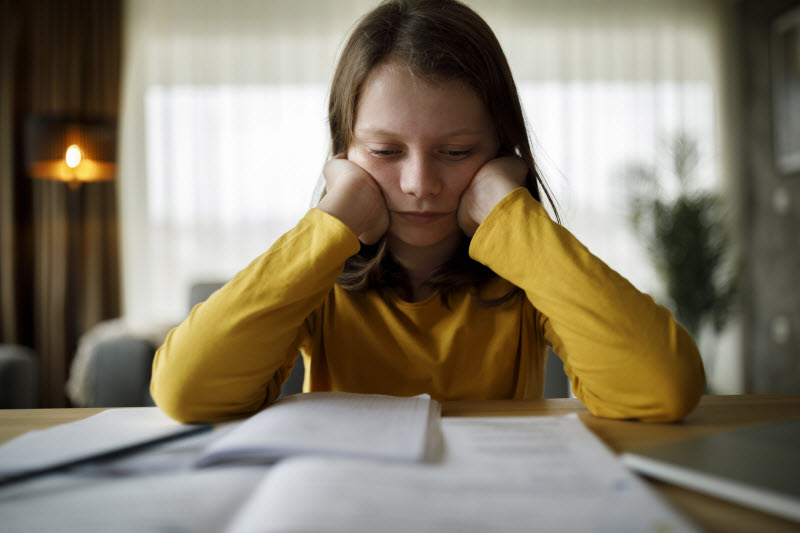[vc_row][vc_column][vc_column_text]This might actually
be your mother’s burnout. Finnish researchers have found that teenagers who are burned out on school tend to have parents who suffer from work burnout. School burnout, defined as students’ exhaustion, cynicism about the value of school and feelings of inadequacy to be successful, influences students’ engagement with schoolwork, well-being and adjustment. The
Finnish study suggests that burnout tends to run in families, as in a burned-out kid doesn’t fall far from the tree.

Why burnout in kids happens
Burnout is a state of mental, physical or emotional exhaustion. It happens when students face ongoing stress or frustration—with no time to relax and recharge. A day packed full of school, extracurriculars, homework, as well as the emotional rollercoaster, hormonal wild ride and social pressures that kids face. If kids don’t have time to recharge, the constant stress becomes anxiety, and the anxiety snowballs into burnout. The exhaustion can also affect how well they perform certain tasks. At the same time, a child’s motivation and interest can be significantly impacted.
Which kids are most susceptible to burnout?
Kids who have a nontypical learning style
Nontypical kids might have to work harder or longer than their peers to achieve similar results. They may get extra instruction or therapy on top of their already full schedules. Kids who struggle with attention, sensory integration, dyspraxia, etc. have to work hard just to focus.
They may work for hours and not make much progress—and still feel exhausted when they get up.
Gifted kids
Gifted kid burnout adds a new dimension to the burnout experience because of their unique neurological make-up. Their perfectionistic tendencies, coupled with asynchronous development—uneven intellectual, physical and emotional development—may feed into the burnout experience in a way that increases the burnout intensity.
Kids whose parents have burnout
Experiences of burnout were shared most particularly between adolescents and parents of the same gender, i.e., between daughters and mothers and between sons and fathers. According to the study, the parent of the same gender functions as a role model for the development of burnout. Also of note: Financial worries can have a big impact on burnout. The greater the family's financial worries, the higher the level of experienced burnout, the study suggests.
If you think a child you know may be experiencing burn out, here are some signs worth digging into, courtesy of the Davidson Institute.
Symptoms of burnout in kids
- Student feels cynical towards work, teachers, classmates, parents and the whole school experience
- Student is disengaging from favorite topics and interests
- Student feels a sense of dread each day around going to school, clubs or other activities
- Student experiences more frequent anxiety or panic attacks
- Student has change in sleeping and eating habits
- Student feels overwhelmed or helpless by small setbacks
- Student has more headaches, digestive issues or other physical ailments
- Student is withdrawing from friends and family
- Student is unmotivated to the point of being unable to complete chores, assignments or social obligations
- Student feels a sense of futility, hopelessness or pessimism toward their future
The child in question may experience many of these signs, or just a few. But if there is evidence of burnout, no need to despair. We are all highly adaptive creatures, kids especially. Here are several ways to help your child recharge and overcome burnout.
7 ways you can help your child overcome burnout
- Connect to your child’s sense of values. Try to make sure the schoolwork has real world applications that feel meaningful.
- Give your child some autonomy over their schedule so they know they have agency and a sense of ownership in their activities.
- Make sure your child is not bored. Encourage them to seek out projects that challenge and engage them.
- Validate their feelings and give them space and support to discuss their anxiety and angst.
- Share mindfulness-based activities and coping strategies with them.
- Unplug from screens/devices and get outside. Fresh air, nature, green space, blue space (water bodies) can do wonders for a nervous system on the fritz.
- Take a mental health day: A mental health day is a day off from school to rest and recharge. They can provide a shot of sanity in a whirligig of pressure, and should be utilized, with discretion. According to the New York Times, “In the last two years alone, Arizona, Colorado, Connecticut, Illinois, Maine, Nevada, Oregon and Virginia have passed bills permitting children to be absent from school for mental or behavioral health reasons, efforts that were often aided or spearheaded by students.” Mental health days can be a day of rest or serve as a joyous occasion, an opportunity to have fun—perhaps the best medicine for burnout.
[/vc_column_text][/vc_column][/vc_row][vc_row][vc_column][vc_text_separator title="Featured Products" border_width="2"][vc_row_inner equal_height="yes" content_placement="middle" gap="35"][vc_column_inner width="1/3"][vc_single_image image="165358" img_size="full" alignment="center" onclick="custom_link" img_link_target="_blank" css=".vc_custom_1678132182945{padding-right: 7% !important;padding-left: 7% !important;}" link="https://www.vitacost.com/olly-kids-chillax"][/vc_column_inner][vc_column_inner width="1/3"][vc_single_image image="165356" img_size="full" alignment="center" onclick="custom_link" img_link_target="_blank" css=".vc_custom_1678132268199{padding-right: 7% !important;padding-left: 7% !important;}" link="https://www.vitacost.com/bach-rescue-remedy-kids-natural-stress-relief-dropper"][/vc_column_inner][vc_column_inner width="1/3"][vc_single_image image="165357" img_size="full" alignment="center" onclick="custom_link" img_link_target="_blank" css=".vc_custom_1678132378680{padding-right: 7% !important;padding-left: 7% !important;}" link="https://www.vitacost.com/natures-way-kids-cool-calm-collected"][/vc_column_inner][/vc_row_inner][/vc_column][/vc_row]




